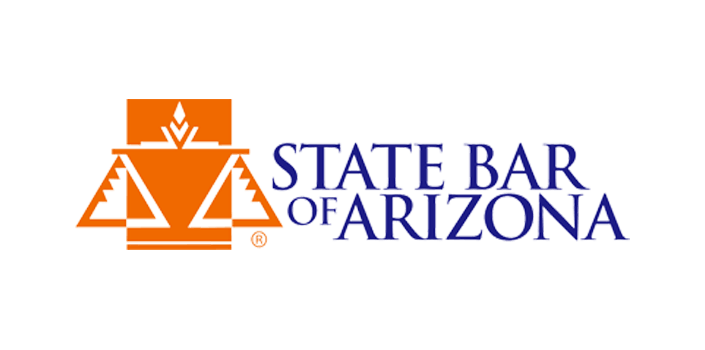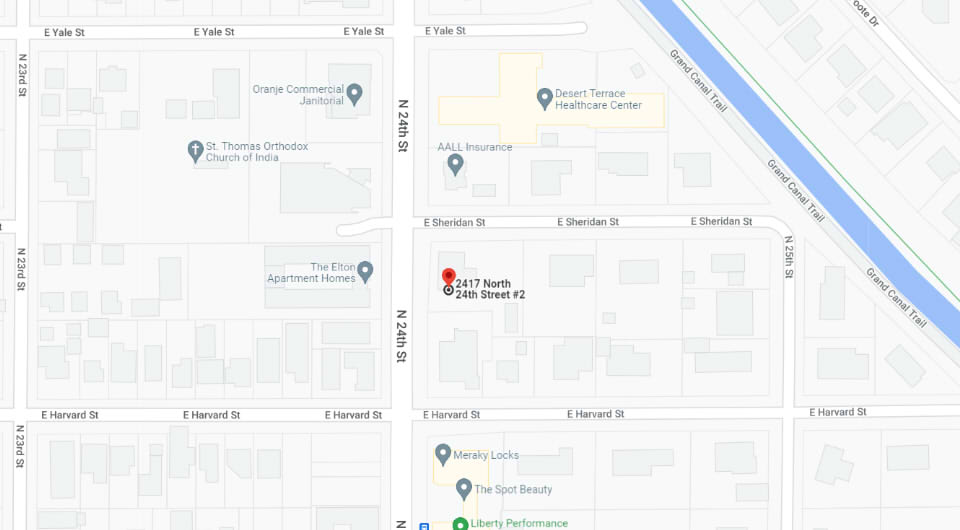The mere mention of the words "breast cancer" is enough to send chills down a woman's spine. However, millions of people beat breast cancer and continue to live long lives following treatment because of the current techniques used in early detection as well as diagnosis. The most important thing is to diagnose it early before it spreads to other parts of the body. When caught early, breast cancer can be treated. Therefore, medical professionals must remain rigorous in conducting routine testing and acting promptly upon any sign of cancer.
However, small errors could result in patients losing their lives. If your physician failed to diagnose you or a loved one and your condition got worse as a result, you can get in touch with the Phoenix Personal Injury Attorney Law Firm to help you recover the compensation you are entitled to.
Statistics on Breast Cancer
Breast cancer is a serious disease that ranks as the second highest cause of mortality from cancers in women in the United States. Throughout their lives, approximately one in eight women (13 percent) will be confirmed to have invasive breast cancer. Due to this, the American Cancer Society advises that women aged between forty and forty-four be provided with the choice to begin yearly mammogram-based breast cancer screenings, that women between the ages of forty-five and fifty-four receive mammograms annually, and that those who are 55 or older keep receiving mammograms either annually or once in two years.
Since disease results are closely related to the cancer stage upon detection, these tests aim to identify cancer of the breast as soon as possible. Cancer treatments are more likely to be successful, less invasive, and have fewer adverse effects if they are administered at an earlier stage.
Lack of an early diagnosis of cancer by a medical professional could strip a person of the best opportunity for fighting and beating the disease. Surgery to remove a lump is sometimes all that's needed to treat breast cancer in its early stages, but by the time it spreads to other parts of the body, more drastic measures may be required. There is a risk of serious side effects from these treatments.
The patient could also be more susceptible to a recurrence of cancer in subsequent years if breast cancer is not detected promptly. When the cancer is eventually discovered, it can potentially result in the individual's death if it has become extremely advanced or aggressive. If a doctor fails to properly diagnose breast cancer promptly due to negligence, the patient could be entitled to compensation for medical malpractice.
How Does a Breast Cancer Failure to Diagnose Occur?
The most common cause of incorrect or missed breast cancer diagnoses is a radiologist's incapacity to identify early warning signs of the disease when interpreting mammograms.
The main objective of routine mammogram screenings is to find breast cancer promptly, giving patients the best opportunity to beat cancer with the least negative side effects. So, when patients have screening mammograms, the images obtained from the test are often evaluated by a radiology specialist who searches for different anomalies which could point to the existence of cancer.
An ultrasound or diagnostic mammogram could be recommended for further testing if anything questionable is discovered to clarify the diagnosis. A biopsy may be recommended if those results indicate anything abnormal as well, or if whatever was discovered before was exceptionally suspicious.
Since they entail collecting tissue samples for analysis in a laboratory, biopsies are frequently relied upon to deliver a conclusive diagnosis. However, follow-ups to ascertain whether there is indeed cancer might not be undertaken if the radiologist fails to notice an alarming anomaly observed on the screening mammogram.
Repeatedly failing to recognize an alarming finding on several mammograms could end up in many years of treatment delays, which allows cancer enough time to develop and advance to other regions of the patient's body. Because of this, the patient could require significantly more surgeries and medical attention to manage their cancer, could experience a lot of side effects, or ultimately pass away from the condition.
Other Factors to Take into Account
Similar outcomes can result from radiologists' failure to recognize warning signs on diagnostic mammograms, such as the delay in doing a tissue biopsy till the illness gets much more serious and challenging to manage.
Another case that could result in a misdiagnosis is the failure of a medical professional to detect cancer signals during breast examinations, such as failing to effectively treat an emerging or growing breast mass by neglecting to schedule an ultrasound, biopsy, or additional mammograms.
Pathologists may also misread findings from biopsies and declare tissue samples to be cancer free when it has cancerous cells. Medical malpractice occurs when these mistakes take place because the healthcare professional failed to provide reasonable caution and someone's health is harmed as a consequence.
Misdiagnoses can result from several different factors. These include confirmatory bias, in which a provider seeks for data to support their preconceived notions about the diagnosis while ignoring data that contradicts them (that is, observing what only they would like to see), as well as anchoring bias, in which a healthcare provider places unwarranted emphasis on one piece of data during decision making and undervalues subsequent data.
Effective medical practice is sometimes thwarted by the practitioner's own preconceived opinions. Doctors and other medical staff may also play a role because of insufficient training, negligence, or poor communication.
Tests and Equipment for Early Detection of Breast Cancer
Currently, available resources allow medical practitioners to reduce breast cancer-related mortality. The detection of masses or lumps is possible through mammograms, diagnostic ultrasounds, MRI scans, and physical breast examinations.
However, if your healthcare provider doesn't request these types of tests, you might not be aware that a tumor you can't feel by yourself could be posing an increasing risk to your well-being. Doctors sometimes fail to diagnose younger women with breast cancer despite clear signs since they don't think it's a disease that typically affects older people.
The possibility of a cancer diagnosis being missed exists even after testing has been requested. Women rely on doctors and radiology specialists for the execution and interpretation of these tests, so they expect them to be skilled and diligent. A mistake could put a patient's life in jeopardy.
Depending on the circumstances, your doctor could be held accountable for your deteriorating condition if they were negligent in failing to detect breast cancer or failing to schedule tests for screening despite a risk factor or a sign. In the same way, it would be considered medical malpractice if the screening was improperly conducted or if the radiologist misinterpreted the data, missing the diagnosis.
Your Legal Right to Medical Competence
Knowing that a trusted doctor's incorrect diagnosis can jeopardize your well-being or the well-being of a person you care about adds to the agony of receiving a diagnosis of breast cancer. Only after completing rigorous academic criteria and proving their expertise can physicians and other medical professionals obtain a license to practice.
If you go to a nurse, physician, radiologist, or any other licensed medical professional, you should be ready to trust their diagnosis or a lack thereof, because they have gone through extensive training and have specialized expertise in the area in which you are seeking treatment.
You could be entitled to financial compensation for any damages if the standard of treatment you obtain falls shy of what another trained physician or healthcare practitioner who possesses a reasonable level of competence would offer for your situation.
If a patient dies because a doctor, radiology specialist, or any other medical practitioner violated the appropriate standard of care in treating them, their family and any surviving loved ones or dependents could bring a legal claim for damages.
Actions You Can Take If Your Doctor Fails to Diagnose Your Breast Cancer
Sadly, if cancer has advanced beyond treatment, there may not be much you could do to regain your health, and there are no means of bringing back someone who has passed away as a result of a doctor's recklessness. However, you can usually recover income to help make up for both the tangible and intangible losses you've incurred.
Even more significantly, you could hold these careless doctors responsible for the horrific damage they brought on you and your loved ones, stop such incidents from happening again, and maybe save other breast cancer patients and their loved ones the same pain.
You should speak with a skilled Phoenix medical malpractice lawyer right away if you're a medical negligence victim and have suffered physical, emotional, or financial loss as a consequence. Make sure the attorney you choose has a track record of success in obtaining major awards for prior clients in situations that are comparable to yours given the immense challenge and intricacy of these matters.
To analyze the medical files and establish negligence, your lawyer must be familiar with medical norms, practices, and jargon and ought to have access to a team of qualified medical specialists.
How Your Medical Malpractice Attorney Can Help
A Phoenix medical malpractice attorney will be able to look at your case and determine what steps need to be taken. Your lawyer can identify the specific instance(s) in which you or a family member's medical providers fell short in at least one of the categories below by carefully reviewing the medical files:
- Failing to request tests for diagnosis.
- Misinterpreted findings.
- Undetected symptoms.
- Not responding quickly enough to unusual or inconclusive findings.
- Failure to perform an accurate analysis of your family medical history.
When a medical professional fails to address you per the required level of care due to an inaccurate diagnosis, you could be entitled to compensation. Your medical negligence lawyer can gather proof to establish the following liability grounds to definitively show fault:
- If there was a patient/doctor relationship at that moment the diagnosis was missed.
- That the doctor had a responsibility to treat you according to the recognized standards of care in medicine.
- That they had been negligent in failing to uphold this standard.
- That the harm—in this example, the progression of the disease—was directly caused by the negligence.
- That the harm caused actual harm, including monetary losses like medical expenses and non-monetary losses like suffering, deformity, and in certain cases, wrongful death.
A Phoenix breast cancer attorney can assist you in obtaining the maximum settlement possible by conducting an inquiry, gathering evidence, speaking with medical professionals, and showing the aforementioned areas of fault.
Types of Compensation Available
A cancer diagnosis that goes untreated causes the disease to progress to more severe stages, necessitating more intrusive, unpleasant, disfiguring, and costly medical treatments. What seemed like a straightforward lumpectomy or biopsy of the lymph node ends up becoming chemotherapy and mastectomy treatment.
In serious cases, the delay might lead to terminal illnesses including cancer that is incurable. Victims can be able to recover the following compensation through a malpractice claim:
- Their current and projected medical costs for continuous care, reconstructive operations, and, if necessary, palliative care.
- Future lost earnings due to continued medical care.
- Lost earnings from time away from the workplace for treatment and recuperation.
- Suffering and pain.
- Disfigurement.
- Emotional trauma.
If delay in treatment causes the patient to pass away, the surviving family members could seek compensation for:
- Funeral costs.
- Income lost as a result of the provider's death.
- Burial expenses.
- Lost support and company.
- Benefits lost, including retirement and healthcare plans.
While monetary compensation cannot restore the damage caused by a delayed or missed diagnosis of breast cancer, it could offer you accessibility to the most important medical care and reduce your financial worries so you can focus on recuperating.
Frequently Asked Questions about Medical Malpractice in Arizona
If you or a loved one has been injured due to someone else's carelessness or malpractice, you have the protection of Arizona's laws. Even though there is no way to ever be financially compensated for medical negligence in Arizona, those who have been affected along with their loved ones could be eligible for financial assistance by filing a claim.
When a claim is unsuccessful, you could be required to file a lawsuit per Arizona's law or the state's wrongful death laws. Although the majority of issues are resolved by out-of-court agreements, an attorney is more than prepared to represent you throughout court if the matter goes to trial.
What is Medical Malpractice in Arizona?
Failure of a medical professional to perform their duties according to the relevant standard of reasonable care is referred to as medical malpractice. A healthcare professional is required to "exert the standard of skill, care, and learning assumed of a sensible, responsible healthcare practitioner in the line of work or category to which they belong within a given state operating in comparable conditions.
However, failure to do this won't automatically make a medical practitioner liable. Due to inherent dangers and room for error in medicine, not all mistakes in diagnosis or therapy constitute malpractice. A negative outcome does not prove malpractice on the part of the healthcare professional. You need a medical malpractice lawyer on your side to help you navigate this complex justice system.
Is There a Cap On the Amount That Can Be Recovered in a Malpractice Case For Breast Cancer?
The sum of damages that can be recovered in a healthcare negligence case in Arizona is not limited. Arizona's Constitution, under Article 2, Section 31, forbids the passing of any legislation that would restrict the amount of compensation that can be obtained for wrongful death or personal injury.
The state's Constitution could, nevertheless, be altered. There is broad consensus that such a limit should be imposed. Those who haven't experienced the fatal effects of malpractice speak out most passionately in favor of such caps.
Who Can File a Breast Cancer Malpractice Lawsuit or Claim?
Claims can be filed by the victim of the injury or, in the case of a decedent, by the victim's surviving family members against any liable healthcare practitioner, including doctors, hospitals, psychologists, mental health professionals, and so forth. However, there's usually a statute of limitations. Normally, a claim needs to be made within 2 years following a death or injury.
Who is Held Liable When Medical Negligence Happens?
Medical professionals, such as nurses and doctors are often held accountable. Individual service providers can be identified as defendants, as well as several physicians and nurses often share some of the blame for patient injuries.
If the medical center or healthcare institution's screening processes or facility conditions fail to meet standards, they could also be found accountable. To defend themselves against any charges made against them, most of these medical professionals will hire armies of attorneys and support personnel.
Even in situations when culpability is obvious, the party responsible could vigorously contest making a just settlement offer. They could make an extremely low settlement proposal in specific circumstances. Hiring a skilled medical malpractice lawyer is crucial since they can be so reluctant to pay and since they're equipped with the means to defend against allegations and lawsuits.
Find a Phoenix Medical Malpractice Attorney Near Me
You can get the assistance you require at the Phoenix Personal Injury Attorney Law Firm if your healthcare provider failed to diagnose breast cancer and your condition deteriorated as a result, or if your loved one passed away from breast cancer misdiagnosed by their doctor.
Our Phoenix personal injury attorneys have years of expertise supporting women and their loved ones who have been harmed when a medical professional failed to diagnose breast cancer. Call us today at 602-641-9589 for a free consultation.










